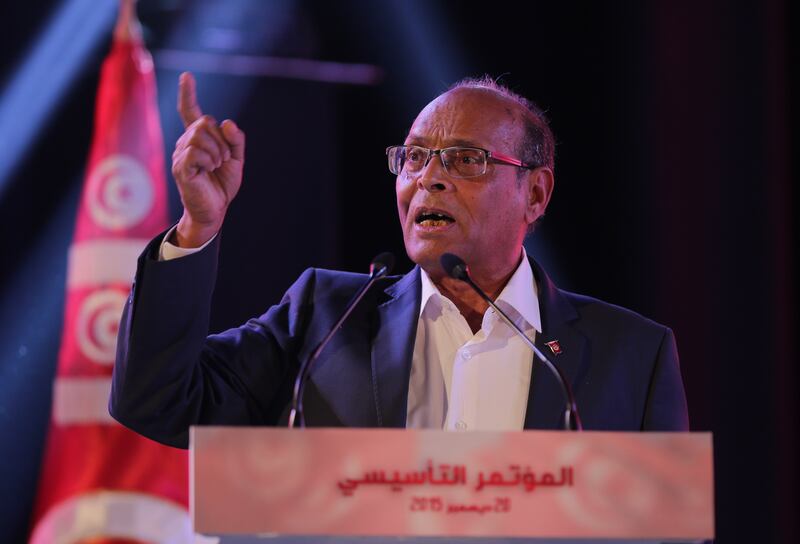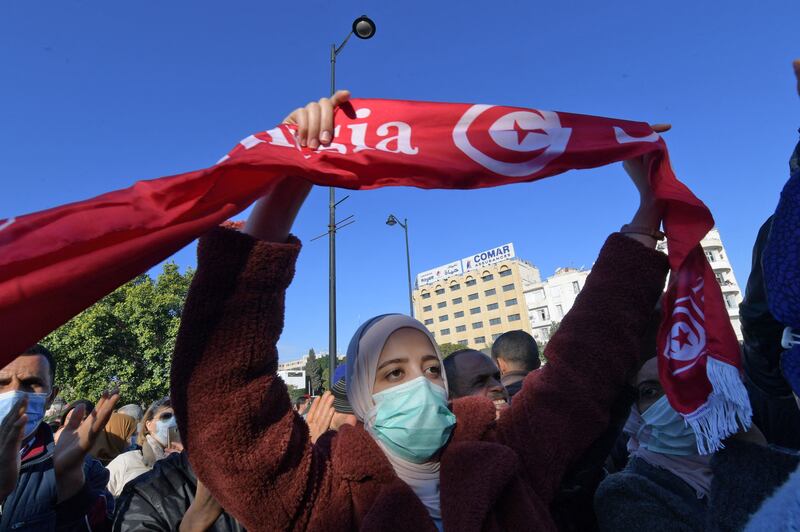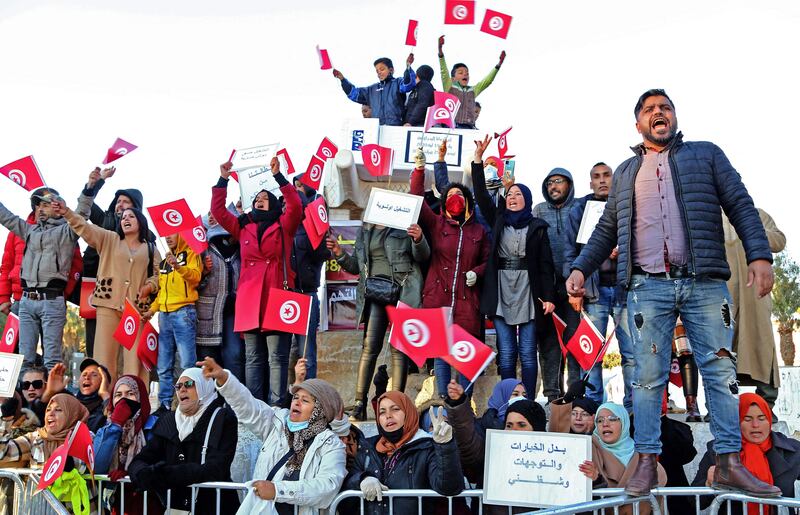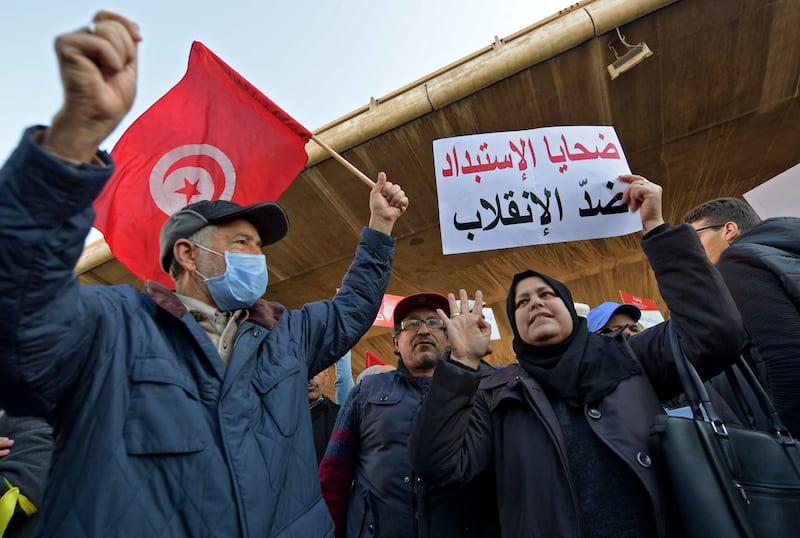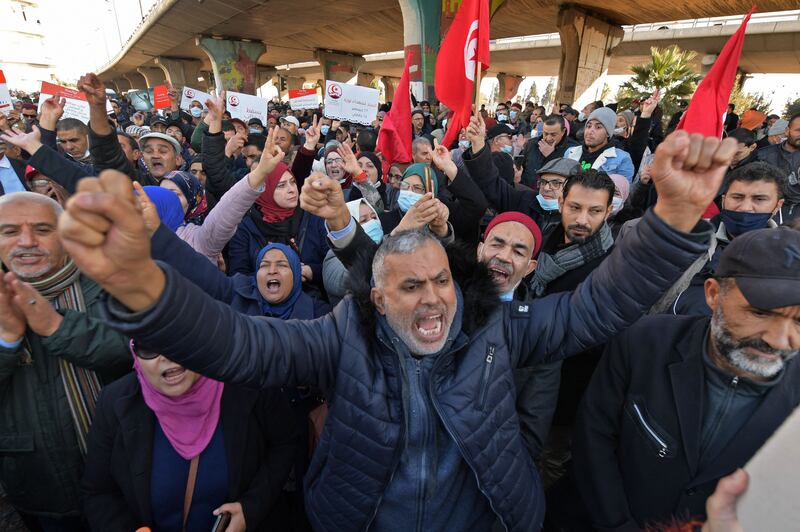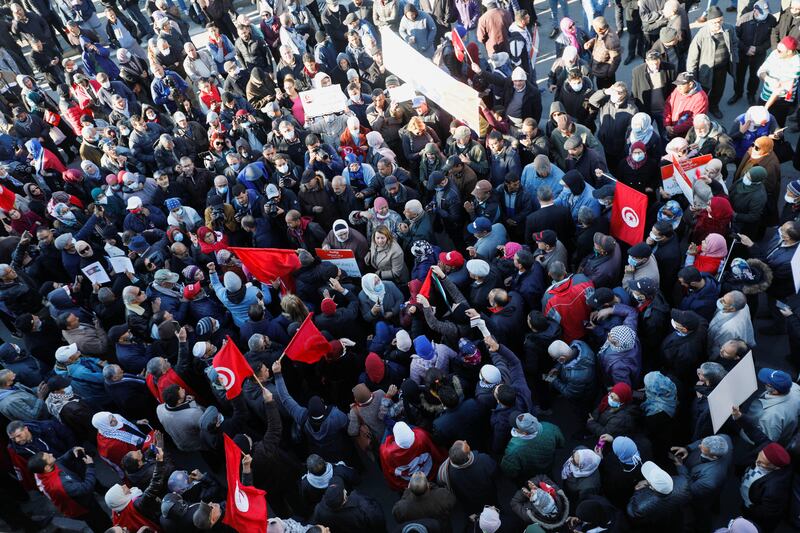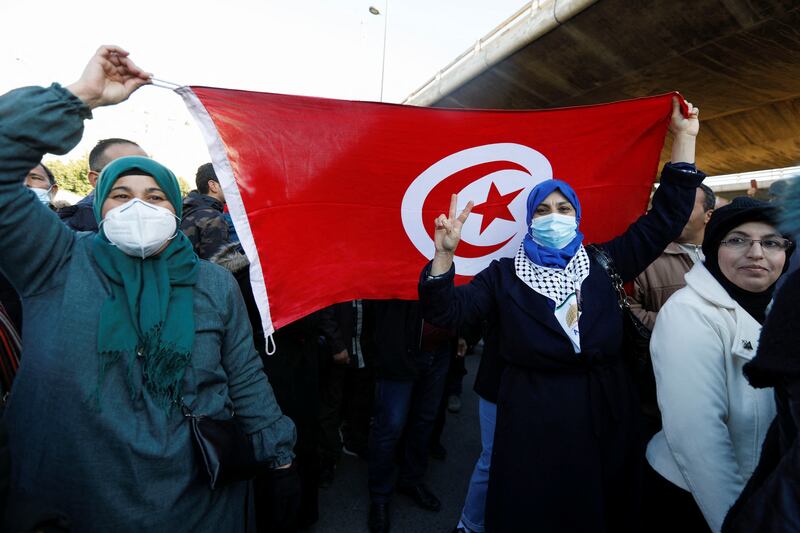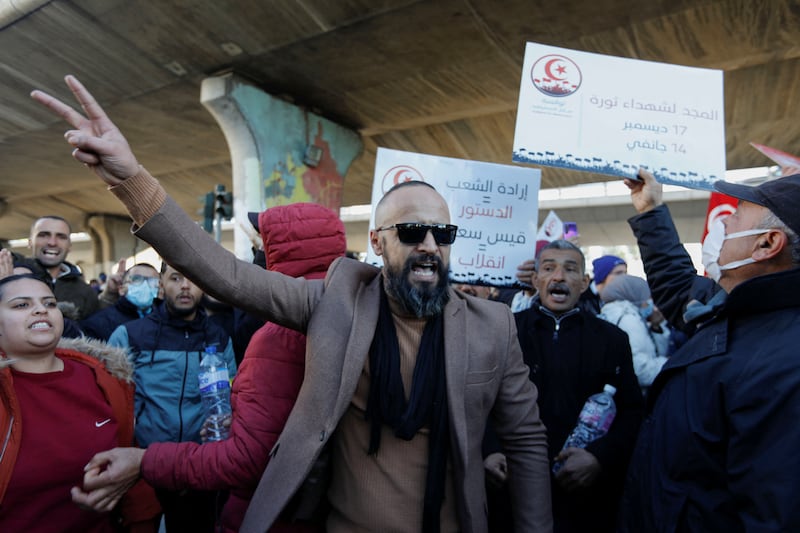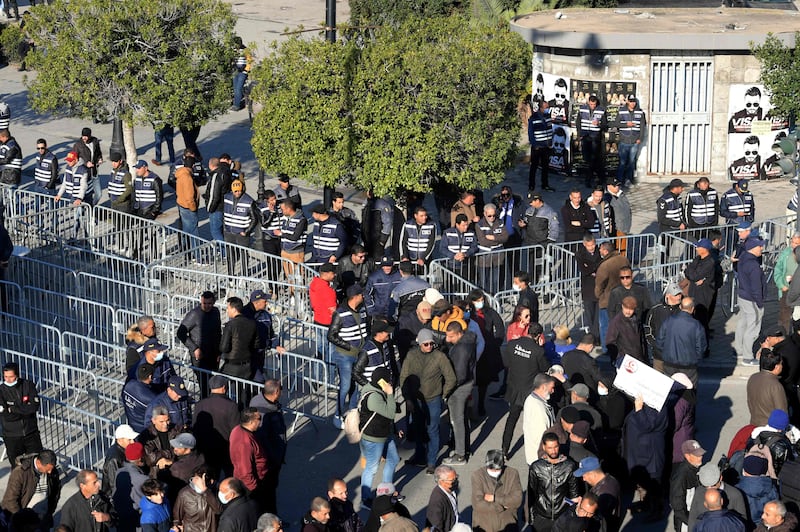Former Tunisian president Moncef Marzouki, a fierce critic of the exceptional take over by current President Kais Saied, has been sentenced in absentia to four years in prison.
On Wednesday, a judicial source said Mr Marzouki, 76, was convicted by the court of first instance in the capital Tunis but did not know what the charge was.
Last month, a Tunisian judge issued an arrest warrant for the former president who lives overseas.
His lawyer, Lamia Khemiri, told AFP that Mr Marzouki had not received any summons to court and did not know why he had been convicted.
Local media said he was found guilty of “undermining the security of the state from abroad” and of having caused “diplomatic harm“.
Mr Marzouki led Tunisia from 2011 to 2014 and now lives in Paris. He is accused of “plotting against the external security of the state,” after he pressed France to oppose his successor’s move to dismiss parliament and the government and rule by executive order in July.
During an early October demonstration in the French capital, in a reference to Mr Saied, Mr Marzouki called on the French government to “reject all support for this regime and this man who plotted against the revolution and abolished the constitution”.
Mr Saied has said Mr Marzouki is among the “enemies of Tunisia”.
The president asked the courts to withdraw his diplomatic passport and to investigate statements he had made.
Mr Marzouki faced criticism for sharing power with the Islamist Ennahda party.
On July 25, Mr Saied sacked the government and began to seize powers after months of political and economic crisis. He has denied the moves were illegal saying the country faced a national crisis and required his intervention.
Since then, Mr Marzouki has used regular television appearances and social media to launch withering broadsides against the president, whom he has called a “dictator”.
Last week, Mr Saied extended the months-long suspension of Parliament until new elections in December 2022 and said a referendum on constitutional reforms should be held in July.
Tunisia is in the grip of an economic crisis caused by decades of corruption, clientelism and government inaction.
About 600,000 Tunisians are believed to have fallen below the poverty line since the start of the coronavirus pandemic.
